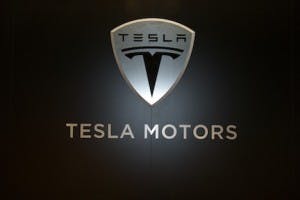
Short traders should get ready for asymmetric trade in Tesla Motors Inc (NASDAQ:TSLA)’s stock moving forward. Looking at how the company is handling its operations, a $100 plus share price is very feasible. In fact, this is a matter of when and not if. Tesla’s key strength is that, unlike other innovative start-ups, it knows the importance of protecting its innovative stance and enhancing the key differentiating factors of its product and brand.
Dealership associations can complain all they want, Tesla made the right move
In a maiden move, Tesla decided that its primary point of contact with its consumers would not be through typical franchises, but through company-owned dealerships. This essentially invalidates the services of dealership car salespersons, who, for a long time, have been deemed to be untrustworthy.
Tesla’s dauntless move sparked a lot of controversy, in the process, attracting several legal tussles. At the fall of March, the Massachusetts Dealer Association joined a growing list of dealer associations that oppose Tesla Motors Inc (NASDAQ:TSLA)’s company-owned store approach. Whether or not this case will go through is an issue that Massachusetts’s court system can best address. Nonetheless, this brewing war between dealerships and Tesla brings some key issues to the spotlight.
1. Is it worthwhile to trade off customer service for a burden-free balance sheet?
The benefit that comes with franchises on the manufacturer’s part is a burden-free balance sheet. Manufacturers have the chance to get inventory off their balance sheet and offload them to franchises. Despite the seemingly favorable prospects that come with this, there is a huge cost. Manufacturers lose control of customer service.
2. Small dealerships understand the market’s need, but do they really understand the product?
One key benefit of dealerships and car sales persons is that they understand the market they serve. They understand the cultural and demographic landscape and know how to filter through. Nonetheless, do they really understand the product they sell? I highly doubt it. That’s why cases of consumers buying products that don’t perform close to even half of what they were made to believe have become commonplace.
Looking at these issues, it comes to note that the involvement of car dealerships favors both the franchise and the manufacturer, but leaves out the buyer. However, the company-owned store approach allows the manufacturer, through in-house salespersons, to explain the real benefits of the product and to highlight each and every feature in the product. In addition, in-house salespersons will be able to package Tesla’s product in a fashion that invariably maintains that all-important innovative edge.
Tesla Motors Inc (NASDAQ:TSLA)’s 2010 move to hire former Apple retail guru George Blankenship will enhance the retail strategy. Blankenship has put in place a strategy that, if implemented well, will build an unquestionably strong brand for Tesla. The strategy is to get feedback on any good or bad customer experience, explain Tesla Motors Inc (NASDAQ:TSLA)’s products and goals, and involve customers in its operations. This not only raises awareness of the brand, but also gives customers a reason to relate with the brand.


